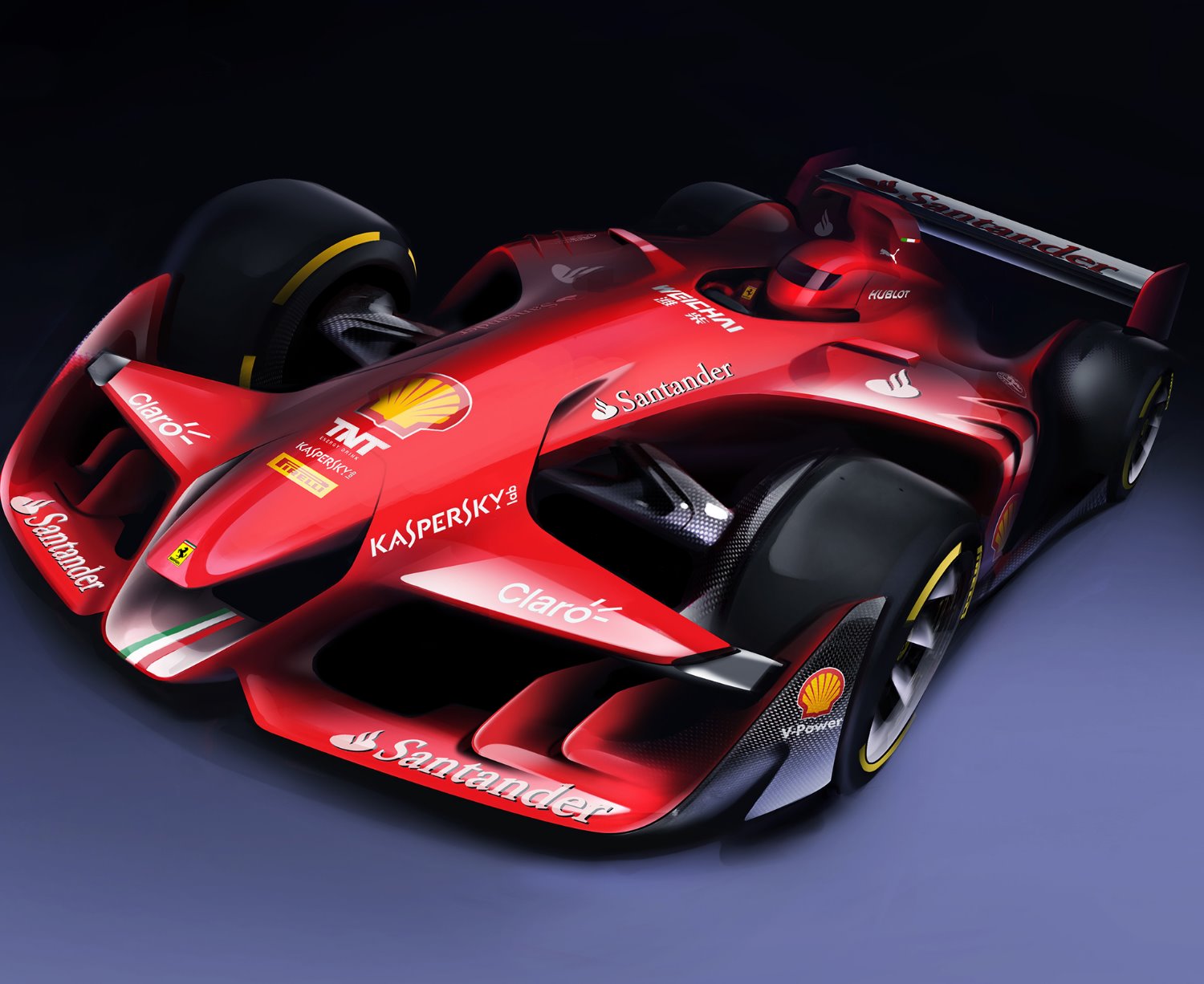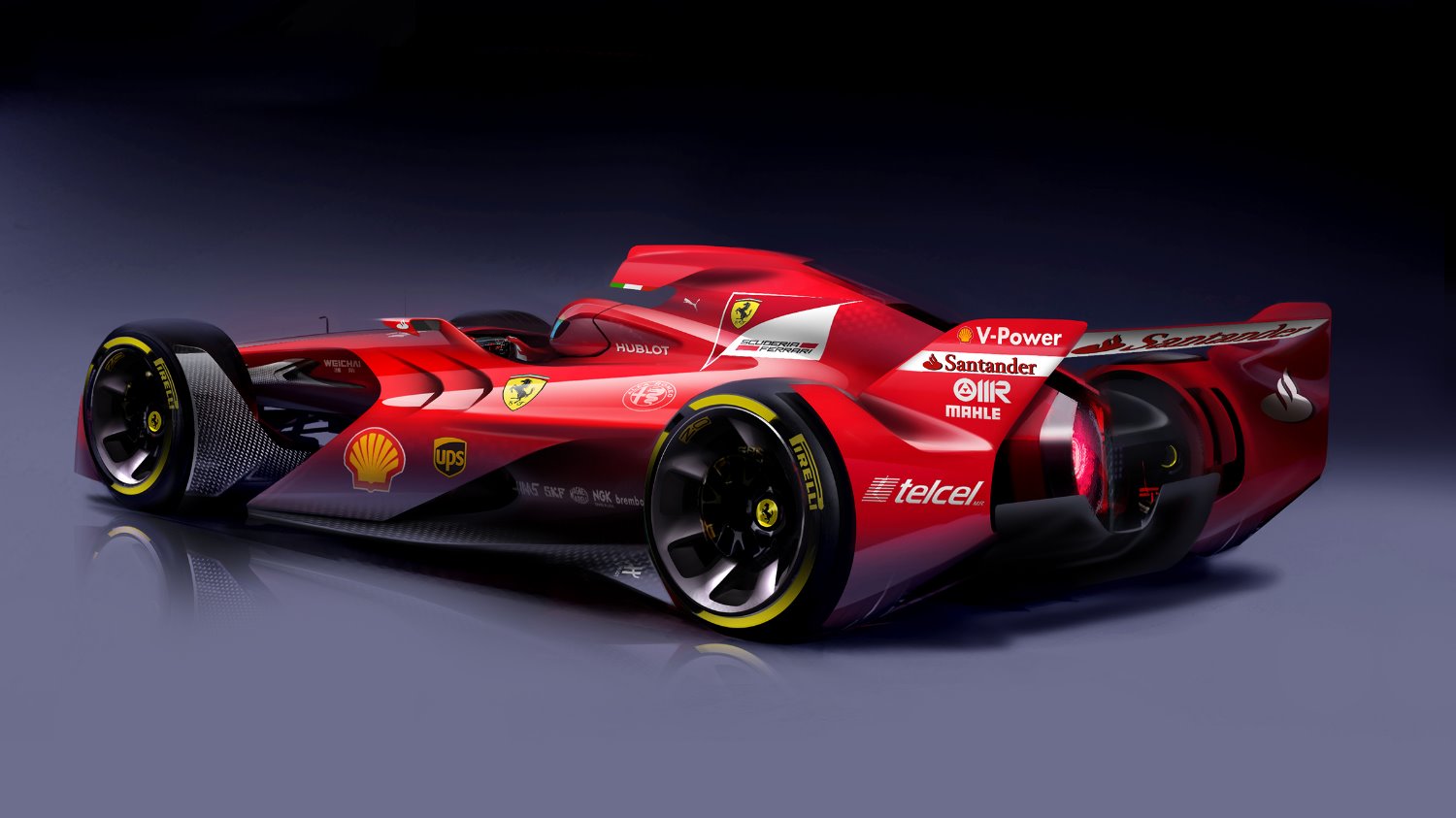The Fundamental Problem with IndyCar and F1 today
 |
 |
| Just because the engines should be 'screamers' with less technology, does not mean the car cannot look awesome |
I'm sorry, I may be old school; however I have been around long enough to recognize what works in motorsports and what does not. When it comes to the world's foremost open wheel racing series – IndyCar and Formula One – both have witnessed steady measurable declines in recent seasons. And it's time for a major shake-up.
In particular F1 and IndyCar need a major revamp of the technical regulations in time for the 2017 season. Unfortunately, a paradigm of thought that has crept into the sport in recent years has put the premium on competition from a technical standpoint rather than a driver standpoint.
What's the problem….
- Racing has fundamentally become an engineering exercise, when it should be a marketing exercise that let's racing be a sport focusing on the driving skill of the drivers
- Green racing, hybrid cars, aero kits all represent a fundamentally flawed model that places a premium on engineering and technology over marketing and sport.
- To be considered a sport, racing needs to be about the talent of the athlete.
Win on Sunday, Sell on Monday has taken a back seat
The engine manufacturers pump a lot of money into the sport and both IndyCar and F1 have become beholden to them. The budgets to develop the engines are deemed R&D hence the cost to go racing is justified as technology transfer for future passenger cars.
Fair point. But that does not make it right from my perspective.
Manufacturers used to be in racing to 'Win on Sunday, sell (cars) on Monday.' They were in racing to sell cars. In open wheel racing today they are in racing to develop new technology for cars first and foremost. A major fundamental difference.
Technology and Engineering are not sports
I'm an engineer myself, and I can tell you point blank 'engineering' is NOT a sport and it has no place in sports.
In the two top open wheel racing series in the world, race fans want heroes and those can only emerge when it is the driver's talent, not the design engineer's talent that wins races.
Using Lewis Hamilton's recent success as an example, it is a "shame" that some, while applauding the Brit's victories, will know that it is in large part down to the car.
We have a sport which is very much dominated by technology. But we need to see the drivers positioned so that they are the kings, the stars who people are following and looking up to.
The fans want a hero. They want an iconic person to follow. And they want to know that when a driver is winning he's actually making a difference.
When people sit in a bar and watch Lewis Hamilton win a race they think great, but they also think that five other drivers in that Mercedes car could have done the same job, and that is a shame.
In NASCAR the driver is the king. Technology is very limited and for good reason. The 'thunder' of those basic V8 engines make the grandstands rattle. If you are at a NASCAR race I urge you to stand on the outside of the exit of a turn and watch the drivers come at you with the backend out and the car in a 4-wheel drift. You will see real talent on display using a very 'low-tech' race car.
No traction control. No stability control. Just raw talent driving a car with almost zero technology.
IndyCar and F1 used to be about raw talent, until they developed underbody downforce and big wings, both creating so much downforce, any Tom, Dick, or Harry could drive one because the car is so planted to the ground.
In NASCAR even the guy at the bottom is a superstar with a multi-million dollar contract. It would be fantastic to see IndyCar and F1 drivers held in that esteem. But all that technology has made the sport so expensive, we now have drivers buying rides to keep teams afloat financially.
If I give the New England Patriots $3 million will they let me be their starting QB? If I give the NY Yankees $3 million can I play shortstop in place of recently retired Derek Jeter?
Real sports don't let players buy their way onto the playing field.
Technology has also ruined the thrill
F1 bolted all that hybrid technology onto their engines, which not only doubled the cost of the engines (dumb) but it killed their signature 'scream' that made you stand back from the fence. The sound of the previous generation F1 cars were 'freakin' awesome, which resulted in a swell of their fan base to hundreds of millions worldwide over the past three decades.
At the peak of IndyCar's heyday under CART the engines were screaming past at 15,000 RPM and they too made you stand back from the fence.
Now the V6 turbocharged IndyCar engines, and turbocharged V6 F1 engines (with loads of technology tacked on) are so quiet the thrill is gone.
I drive an electric car these days and I love it. But I'm sorry, Formula E is not a sport, it's an engineering exercise. If it were not for the fact that admission was free, and they are throwing a lot of money behind the series, Formula E would likely be stillborn.
Electric cars are for the Highway, not the Raceway. I want quiet so I can listen to my stereo in the car or talk on my speakerphone when I am riding down the highway, but when I am at the Raceway I want a visceral experience. I want my senses to stand up and yell "yeah, give me more!" The following video is the sound of a race car that gives you a 'visceral' experience, not the sorry sound emitted from the exhaust pipes of today's F1 and IndyCars. And I do mean 'sorry.'
This is what an F1 car and an IndyCar should sound like.
I drive an electric car so I can do my part in clean up the air we breathe, but I don't go to a race track and worry whether I am breathing clean air.
I have heard the arguments about the 'screaming V8s of yesterday being too loud. If they offend you, wear earplugs, the rest of us want to have our socks knocked off and we want to see the best drivers win races, not some energy storage technology, designed by some computer geek sitting in front of a computer monitor, that we cannot hear or see, boost power and win the race.
Others Agree
Now outside of the paddock, former F1 driver Jamie Alguersuari says he has no regrets about being left out of F1, as he is "incredibly disappointed" with the direction F1 has taken in the past few years.
He is referring mainly to the spiraling costs, and that so much of the grid is therefore now filled by so-called 'pay drivers'.
"I don't think it's a sport," said Alguersuari.
"I used to believe it was, but now I understand the business — I've seen it, I was there, and I really hope that Formula E has a better structure and avoids the mistakes the others have made."
Bernie Ecclestone has renewed his calls for a return to V8 engines plus a boost in power to increase excitement and noise, which he believes will draw fans back to the sport.
The 84-year-old has been against the introduction of hybrid-V6 units ever since they were first conceived, but the sport pushed ahead with their introduction in response to calls for 'greener technology'.
Ecclestone reckons they're to blame for the sports financial woes and the shrinking TV audiences, therefore he is keen for the sport to take a step back.
"We need to go back to engines whose costs are more reasonable, and we need to intervene with maximum urgency," he told Gazzetta dello Sport.
"Why? Going back to a Formula 1 with naturally aspirated engines and KERS, while setting precise constraints, would drastically reduce costs and would be convenient for those already in F1 and for those would like to enter it.
"We'd just need to take the old V8 engines and modify them by increasing displacement to bring power output near 1000bhp.
"People would return, the show would return, sponsors would return," he added.
The current business model is clearly not working for enough people. Change is needed and the current mechanism for change is very cumbersome and very slow. IndyCar and F1 have too many people with different vested interests. Someone has got to put a marker in the ground and say this is it. We can't spend another year going round in circles trying to find the big compromise.
Other Viewpoints
I felt it only fair to seek the opinion of others in the sport. I spoke with two key people in the IndyCar paddock, TE McHale, Manager of Motorsports Communication for American Honda (to seek Honda's perspective) and Kevin Kalkhoven – Co-Owner of KV Racing, co-owner of Cosworth, and co-owner of the Toyota Grand Prix of Long Beach (to seek a team owner, race engine manufacturer and race promoters perspective).
T.E. McHale – American Honda
Kevin Kalkhoven
